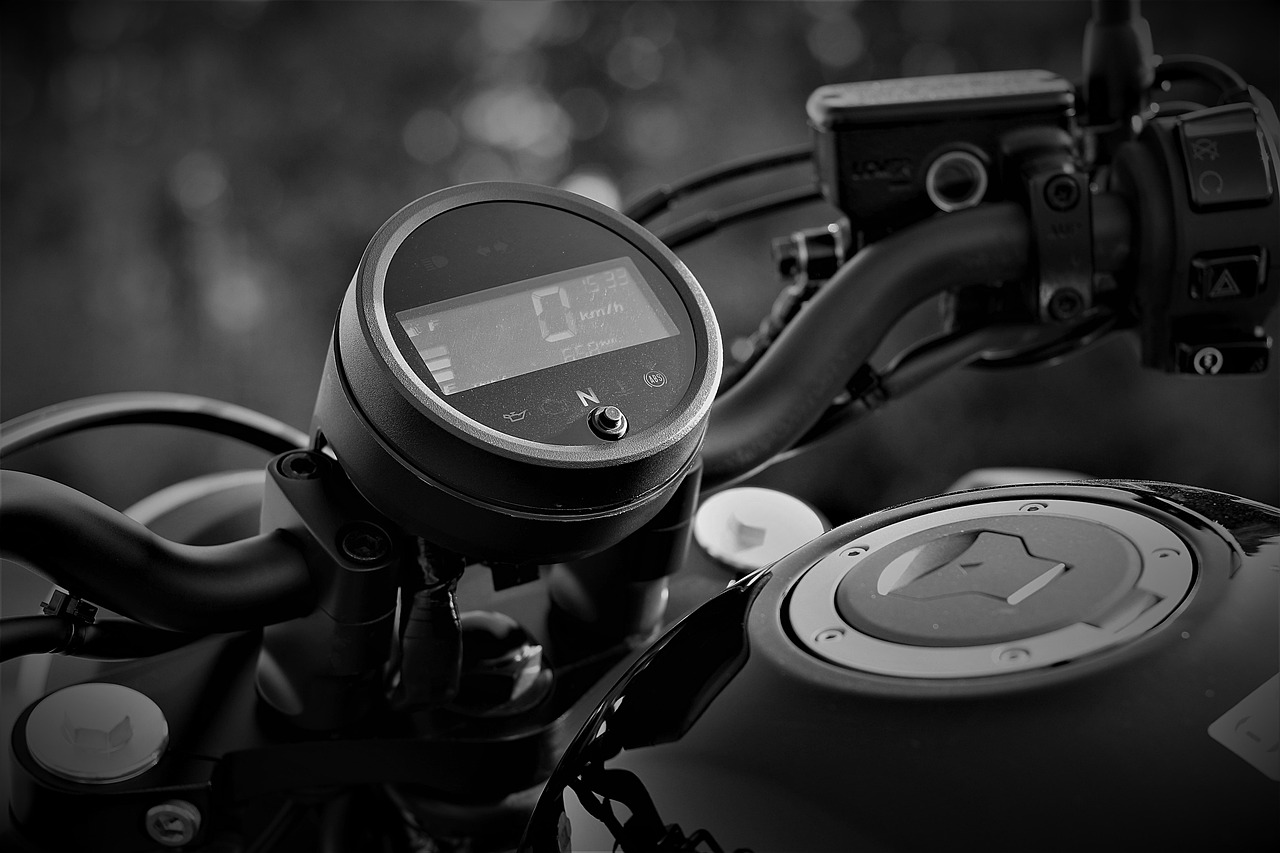The Honda Accord is a popular choice among midsize sedans, known for its reliability, fuel efficiency, and advanced technology features. This article delves into the pricing of Honda Accord models, the factors influencing costs, and comparisons with competitors, equipping potential buyers with the necessary information to make informed decisions.
The starting price for a new Honda Accord varies depending on the selected trim level and available features. Typically, prices range from $27,000 for the base model to around $38,000 for fully loaded versions. This range reflects the Accord’s competitive positioning in the midsize sedan market.
Trim levels play a crucial role in determining the overall cost of the Honda Accord. Each trim offers unique features and performance enhancements, which can significantly affect the price.
The base trim of the Honda Accord is designed for budget-conscious consumers. It includes essential features such as a rearview camera, a 7-inch touchscreen, and Honda Sensing safety technologies, making it a reliable option for many buyers.
Higher trim levels of the Accord come equipped with premium features like leather upholstery, advanced infotainment systems, and enhanced safety technologies. These upgrades, while increasing the purchase price, offer added comfort and convenience for those willing to invest more.
For those seeking a more budget-friendly option, used Honda Accords are available at prices typically ranging from $15,000 to $25,000. The specific cost depends on factors such as model year, mileage, and overall condition.
- Mileage: Lower mileage often leads to higher resale value.
- Condition: Well-maintained vehicles command better prices.
- Location: Prices can vary based on regional demand and availability.
Potential buyers can explore various platforms to find competitive prices on used Honda Accords. Options include dealerships, online marketplaces like CarGurus and Autotrader, and private sellers.
Financing a Honda Accord can be approached through several avenues, including loans, leases, and special offers from Honda dealerships. Each option caters to different financial needs and preferences.
Understanding the pros and cons of leasing versus buying can significantly impact a buyer’s financial decision. Leasing typically offers lower monthly payments and the option to drive a new car every few years, while buying allows for full ownership and no mileage restrictions.
Honda frequently provides promotional financing rates, especially during sales events. These offers can lower monthly payments, making it easier for buyers to afford their new vehicle.
When considering a Honda Accord, it’s essential to compare it with similar vehicles in the market. This comparison helps buyers understand the Accord’s value in terms of pricing, features, and performance.
Examining competitors like the Toyota Camry and Nissan Altima reveals how the Accord stacks up. While all three models are priced similarly, the Accord often offers better standard features and safety ratings.
A detailed feature comparison shows that the Honda Accord excels in areas such as safety technology and interior space, making it a strong contender in the midsize sedan segment.
Beyond the initial purchase price, buyers should consider additional costs such as taxes, registration fees, insurance, and maintenance when budgeting for a Honda Accord.
Insurance premiums can vary significantly based on the model, driver history, and location. It’s crucial for buyers to obtain quotes from multiple insurers to find the best rates.
Understanding the long-term maintenance costs associated with a Honda Accord can help buyers prepare for future expenses. Regular maintenance, such as oil changes and tire rotations, is essential for keeping the vehicle in optimal condition.

What Is the Starting Price of a New Honda Accord?
The Honda Accord has long been a favorite among midsize sedan enthusiasts, offering a blend of reliability, comfort, and technology. As potential buyers explore their options, one of the first questions that arise is, “What is the starting price of a new Honda Accord?” This article delves into the pricing structure of the Honda Accord, shedding light on the factors that influence its cost and providing insights for informed purchasing decisions.
The starting price for a new Honda Accord varies significantly based on the chosen trim levels and additional features. Typically, the base model begins at approximately $27,000, while higher-end trims can reach up to $38,000. This price range reflects the Accord’s reputation for quality, safety, and advanced technology.
Understanding how trim levels impact pricing is crucial for potential buyers. The Honda Accord is available in multiple trims, each offering distinct features and enhancements:
- Base Trim Features: The entry-level trim provides essential features such as a rearview camera, Honda Sensing safety suite, and a touchscreen infotainment system. This trim is ideal for budget-conscious buyers.
- High-End Trim Features: As you move up the trim ladder, additional features like leather upholstery, advanced navigation systems, and premium audio systems become available. These upgrades contribute to the higher price point, appealing to those seeking luxury and technology.
For those considering a more budget-friendly option, used Honda Accords present an attractive alternative. Prices for pre-owned models typically range from $15,000 to $25,000, depending on factors such as model year, mileage, and condition.
Several factors can significantly influence the resale value of a used Honda Accord:
- Mileage: Lower mileage often correlates with a higher resale value.
- Condition: A well-maintained vehicle will command a better price.
- Location: Market demand in different regions can affect pricing.
Potential buyers can explore various platforms for purchasing used Honda Accords, including:
- Local dealerships
- Online marketplaces like Autotrader and CarGurus
- Private sellers through classified ads
Financing a Honda Accord can be approached through several options, including loans, leases, and special financing offers from Honda dealerships. Understanding these choices can help buyers select the best financial path for their needs.
When deciding between leasing and buying, buyers should consider the pros and cons:
- Leasing: Lower monthly payments and the ability to drive a new car every few years.
- Buying: Ownership of the vehicle and no mileage restrictions.
Honda frequently provides promotional financing rates, especially during sales events, which can significantly reduce monthly payments and overall costs.
In the competitive midsize sedan market, comparing the Honda Accord with similar vehicles is essential for buyers. Competitors like the Toyota Camry and Nissan Altima often have similar pricing structures, but the Accord stands out in various aspects.
Examining the pricing of competitors reveals how the Accord stacks up:
- Toyota Camry: Starting prices typically range from $26,000 to $35,000.
- Nissan Altima: Prices usually fall between $25,000 and $34,000.
A detailed feature comparison highlights the Honda Accord’s strengths, particularly in safety ratings and technology offerings, making it a compelling choice for many buyers.
Beyond the purchase price, buyers should account for additional costs such as taxes, registration fees, insurance, and maintenance when budgeting for a Honda Accord.
Insurance premiums can vary based on the model and driver history, impacting the overall cost of ownership for a Honda Accord.
Understanding the long-term maintenance costs associated with a Honda Accord can help buyers prepare for future expenses, ensuring a smooth ownership experience.

How Do Trim Levels Affect Honda Accord Pricing?
The Honda Accord is a popular choice among midsize sedan buyers, known for its reliability, performance, and advanced features. One of the key factors influencing the pricing of the Honda Accord is its trim levels. Each trim offers a distinct set of features and performance enhancements that can significantly impact the overall price. Understanding how these trim levels affect pricing is essential for potential buyers looking to make informed decisions.
The Honda Accord is available in several trim levels, each designed to cater to different preferences and budgets. The most common trims include:
- Base Trim: This entry-level option provides essential features such as a rearview camera, adaptive cruise control, and a touchscreen infotainment system.
- Mid-Level Trim: This trim adds more comfort and convenience features, including upgraded audio systems, enhanced safety features, and additional interior luxuries.
- High-End Trim: The top-tier trim is packed with premium features such as leather upholstery, advanced navigation systems, and enhanced performance upgrades.
Each trim level comes with a unique set of features that can significantly influence the pricing of the Honda Accord. For instance:
- Technology Upgrades: Higher trims often include advanced technology features like a premium sound system, larger infotainment screens, and smartphone integration capabilities.
- Safety Enhancements: Advanced safety features, such as lane-keeping assist and adaptive headlights, are typically found in higher trims, contributing to increased costs.
- Performance Features: Performance upgrades, including engine enhancements and sport-tuned suspensions, are usually reserved for the higher-end trims, adding to their price tag.
When comparing the base trim to high-end trims, the price difference can be substantial. For example, while the base trim might start around $27,000, the fully loaded high-end trim can reach up to $38,000 or more. This price increase reflects the additional features and technology that enhance the driving experience.
Buyers opt for different trim levels based on their individual needs and budget constraints. Some may prioritize essential features and affordability, while others may seek a more luxurious experience with advanced technology and performance capabilities. Understanding the value of each trim level can help buyers align their choices with their financial situation and lifestyle needs.
Deciding whether to upgrade to a higher trim level ultimately depends on personal preferences and financial considerations. Buyers should assess the added features against their budget and needs. For those who value luxury, technology, and performance, investing in a higher trim may be worthwhile. Conversely, budget-conscious buyers may find that the base trim offers sufficient value without compromising on reliability.
In conclusion, the trim levels of the Honda Accord play a crucial role in determining pricing. By understanding the differences in features and performance upgrades, potential buyers can make informed decisions that align with their preferences and budget. Whether opting for the base model or a fully loaded version, the Honda Accord continues to offer a compelling choice in the midsize sedan market.
Base Trim Features
The base trim of the Honda Accord is designed to offer a balance of essential features and affordability, making it an attractive option for budget-conscious buyers. With a starting price that appeals to many, this trim provides reliability without compromising on quality.
One of the standout features of the base trim is its efficient engine. The Honda Accord typically comes equipped with a turbocharged four-cylinder engine that delivers a commendable balance of power and fuel efficiency. This engine not only enhances the driving experience but also helps in keeping fuel costs manageable, which is a significant consideration for many buyers.
In terms of technology, the base trim does not skimp on essential features. It includes a 7-inch touchscreen display that supports both Apple CarPlay and Android Auto. These integrations allow drivers to seamlessly connect their smartphones, providing easy access to navigation, music, and communication apps. This feature is particularly appealing to tech-savvy individuals who prioritize connectivity on the road.
Safety is another area where the Honda Accord shines, even in its base trim. The vehicle comes with the Honda Sensing Suite, which includes a range of advanced safety features such as:
- Collision Mitigation Braking System
- Road Departure Mitigation System
- Adaptive Cruise Control
- Lane Keeping Assist
These features work together to enhance driver awareness and reduce the likelihood of accidents, making the Accord a safe choice for families and individuals alike.
Comfort is not overlooked in the base trim either. The interior is spacious, with quality materials that provide a pleasant driving environment. Features such as automatic climate control and ample legroom contribute to a comfortable ride, whether for daily commutes or long road trips.
Furthermore, the base trim offers a practical trunk space that is among the best in its class, providing ample room for groceries, luggage, or sports equipment. This utility is a key factor for many buyers who need a vehicle that can accommodate their lifestyle.
Overall, the base trim of the Honda Accord stands out as a reliable and budget-friendly option. It combines essential features, advanced safety technology, and comfort, making it an excellent choice for those seeking a dependable midsize sedan. With its competitive pricing and strong reputation for reliability, the Honda Accord base trim continues to attract a wide range of buyers looking for value without sacrificing quality.
High-End Trim Features
The Honda Accord is renowned for its blend of performance, comfort, and advanced technology. One of the key aspects that influence the overall cost of the Accord is its trim levels. Among these, the high-end trim levels stand out by offering a plethora of features that not only enhance the driving experience but also substantially impact the purchase price.
High-end trims of the Honda Accord, such as the Touring and Sport Special Edition, are equipped with premium amenities that cater to drivers seeking luxury and advanced technology. These trims often include:
- Leather Upholstery: Unlike the base models, high-end trims feature high-quality leather seating that adds a touch of elegance and comfort.
- Advanced Infotainment Systems: Enhanced audio systems, larger touchscreens, and smartphone integration (like Apple CarPlay and Android Auto) provide a superior tech experience.
- Safety Features: Top trims often come with advanced safety technologies such as adaptive cruise control, lane-keeping assist, and collision mitigation braking systems.
- Performance Upgrades: Some high-end models include more powerful engines, sport-tuned suspensions, and enhanced handling features that elevate the driving dynamics.
- Exterior Enhancements: Features such as LED headlights, larger alloy wheels, and unique styling elements make these trims stand out visually.
While the base trim of the Honda Accord offers essential features at a competitive price, opting for a high-end trim can significantly increase the overall cost. The price difference can range from $5,000 to $10,000 or more, depending on the selected options and packages.
Investing in a high-end trim means that buyers are paying for not just the luxury features but also the added value of enhanced safety and performance capabilities. For many buyers, these features justify the increased cost, as they contribute to a more enjoyable and secure driving experience.
Determining whether high-end trims are worth the investment largely depends on individual preferences and needs. For those who prioritize comfort and technology, the additional cost may be justified. High-end trims often offer:
- Resale Value: Vehicles with more features tend to hold their value better over time, making them a smart investment.
- Enhanced Comfort: Long drives become more pleasant with features like heated seats and premium audio systems.
- Driving Experience: Performance enhancements can lead to a more engaging driving experience, which is particularly appealing to enthusiasts.
Ultimately, the decision to opt for a high-end trim level of the Honda Accord should be guided by personal preferences, budget considerations, and desired features. While the initial purchase price may be higher, the long-term benefits of luxury, convenience, and advanced technology can make it a worthwhile investment for many buyers.

What Are the Costs of Used Honda Accords?
The Honda Accord is a popular choice for many drivers, known for its reliability, comfort, and strong resale value. When considering a used Honda Accord, potential buyers often wonder about the associated costs and factors that influence pricing. This section aims to provide a comprehensive overview of the costs of used Honda Accords, helping buyers make informed decisions.
Used Honda Accords present a more affordable option for those looking to own a reliable midsize sedan. Prices typically range from $15,000 to $25,000, depending on the model year, condition, and additional features. For instance, older models or those with higher mileage may fall on the lower end of this range, while newer models with fewer miles and better condition can command higher prices.
Several factors can significantly impact the resale value of a used Honda Accord:
- Mileage: Generally, the more miles a vehicle has, the lower its value. A Honda Accord with low mileage will typically be priced higher due to its potential for longevity.
- Condition: The overall condition of the car, including exterior and interior wear and tear, plays a crucial role in determining its price. A well-maintained Accord will attract a higher price.
- Model Year: Newer models often come with updated technology and safety features, making them more desirable and thus more expensive.
- Location: Prices can vary based on geographical location, with urban areas often seeing higher prices due to demand.
Potential buyers have various options when searching for used Honda Accords:
- Dealerships: Certified pre-owned Honda Accords from dealerships often come with warranties and thorough inspections, providing peace of mind.
- Online Marketplaces: Websites like Autotrader, CarGurus, and Craigslist offer extensive listings where buyers can compare prices and features.
- Private Sellers: Purchasing from private sellers can sometimes yield lower prices, but buyers should be cautious and ensure they conduct a thorough inspection.
When budgeting for a used Honda Accord, it’s essential to consider additional costs beyond the purchase price:
- Taxes and Registration Fees: Depending on your state, these fees can add a significant amount to your overall cost.
- Insurance: Insurance premiums can vary based on the model and the driver’s history, impacting the total cost of ownership.
- Maintenance: Regular maintenance is crucial for keeping a Honda Accord running smoothly. Buyers should anticipate costs for oil changes, brake replacements, and other routine services.
Financing a used Honda Accord can make ownership more accessible. Various options include:
- Loans: Many banks and credit unions offer competitive rates for used car loans.
- Leasing: While less common for used cars, some dealerships may offer leasing options.
- Special Offers: Occasionally, Honda dealerships may have promotions for used cars, providing lower interest rates or cash back incentives.
In conclusion, understanding the costs associated with used Honda Accords is crucial for potential buyers. By considering factors such as mileage, condition, and market options, buyers can make informed decisions that align with their budget and needs.
Factors Influencing Used Car Prices
The resale value of a used Honda Accord is influenced by a multitude of factors that potential sellers and buyers should consider. Understanding these elements can help in making informed decisions, whether you are looking to sell your Honda Accord or purchase a used one.
Mileage is one of the most significant factors affecting the resale price of a used Honda Accord. Generally, the lower the mileage, the higher the resale value. A vehicle with high mileage may indicate more wear and tear, leading to potential maintenance issues. Conversely, a well-maintained Accord with low mileage can command a premium price in the used car market.
The overall condition of the vehicle plays a crucial role in its resale value. This includes both the mechanical condition and the aesthetic aspects. A Honda Accord that has been regularly serviced, free from major accidents, and shows minimal signs of wear will be valued higher than one that has been neglected. Buyers are often willing to pay more for a car that looks and drives well.
Location can significantly affect the resale value of a used Honda Accord. In regions where sedans are in high demand, such as urban areas, the resale value may be higher compared to rural areas where SUVs and trucks are more popular. Additionally, local market trends and economic conditions can influence how much buyers are willing to pay.
A comprehensive service history can enhance the resale value of a used Honda Accord. Buyers often prefer vehicles that have been well-documented, showing regular maintenance and any repairs performed. Having this information readily available can build trust and justify a higher asking price.
The demand for used cars fluctuates based on various factors, including economic conditions and seasonal trends. For instance, during tax season, many buyers are looking for reliable vehicles, which can increase the resale value of a Honda Accord. Conversely, during economic downturns, the demand may decrease, affecting prices negatively.
While some modifications may enhance the appeal of a Honda Accord, others can detract from its resale value. Customizations that are not universally appealing may limit the number of potential buyers. It’s often best to keep modifications to a minimum if you plan to resell the vehicle in the future.
When determining the resale value, it’s essential to compare the Honda Accord with similar models in the market. Understanding how it stacks up against competitors like the Toyota Camry or Nissan Altima can provide insights into pricing strategies. If the Accord offers better reliability or features, it may retain its value more effectively.
In summary, several factors such as mileage, condition, location, service history, market demand, and modifications can significantly influence the resale value of a used Honda Accord. By considering these elements, both buyers and sellers can navigate the used car market more effectively, ensuring fair pricing and satisfactory transactions.
Where to Find Used Honda Accords
When searching for a used Honda Accord, potential buyers have a wealth of options at their disposal. Understanding where to look can significantly impact the price and quality of the vehicle you choose. Below, we explore various platforms where buyers can find competitive prices on used Honda Accords.
One of the most traditional avenues for purchasing a used Honda Accord is through authorized dealerships. These dealerships often have a selection of certified pre-owned vehicles that come with additional benefits such as warranties and vehicle history reports. While prices may be slightly higher at dealerships compared to private sellers, the assurance of quality and reliability can justify the cost.
In today’s digital age, online marketplaces have become increasingly popular for buying used cars. Websites like Autotrader, Cars.com, and CarGurus allow buyers to browse a vast selection of used Honda Accords from the comfort of their homes. These platforms provide filters to narrow down searches based on price, mileage, year, and location, making it easier to find a vehicle that meets specific needs.
Another option for buyers is to explore listings from private sellers. Websites like Craigslist and Facebook Marketplace often feature used Honda Accords at competitive prices. While purchasing from a private seller can lead to better deals, it is essential for buyers to conduct thorough inspections and obtain vehicle history reports to avoid potential pitfalls.
- Price Comparison: Always compare prices across different platforms to ensure you are getting the best deal.
- Vehicle History: Check the vehicle history report for any accidents or major repairs.
- Inspection: If possible, have the vehicle inspected by a trusted mechanic before making a purchase.
In addition to traditional online marketplaces, social media platforms and community boards can be valuable resources for finding used Honda Accords. Local groups on Facebook often have listings from community members looking to sell their cars. Engaging with these communities can also provide insights into the vehicle’s condition and the seller’s reputation.
Each platform has its advantages and disadvantages. Dealerships offer reliability and customer service, while online marketplaces provide convenience and a broader selection. Private sellers may offer lower prices, but buyers should be cautious and do their due diligence. By weighing these factors, potential buyers can make informed decisions that align with their budget and preferences.
In conclusion, whether you choose to buy from a dealership, an online marketplace, or a private seller, being informed about your options can lead to a successful purchase of a used Honda Accord. By exploring various platforms and considering the factors mentioned above, you can find the perfect vehicle that fits your needs and budget.

What Financing Options Are Available for Honda Accords?
The Honda Accord is a popular choice for those seeking a reliable and stylish midsize sedan. When considering a purchase, understanding the various financing options available is crucial. This section delves into the different avenues for financing a Honda Accord, including loans, leases, and special offers from Honda dealerships, ensuring that potential buyers find an option that fits their budget.
When it comes to financing a Honda Accord, buyers have several options to choose from. Each option caters to different financial situations and preferences, allowing for a tailored approach to purchasing this esteemed vehicle.
- Loans: Traditional auto loans are a common choice for many buyers. These loans can be obtained through banks, credit unions, or even Honda’s financing department. The terms can vary, with interest rates influenced by credit scores and the loan duration. Buyers should compare rates from different lenders to ensure they secure the best deal.
- Leases: Leasing a Honda Accord is another popular option. This allows drivers to enjoy a new vehicle without the long-term commitment of buying. Lease agreements typically last 2-3 years, and monthly payments are often lower than loan payments. However, it’s important to consider mileage limits and potential fees for excessive wear and tear.
- Special Offers: Honda dealerships frequently provide special financing offers, especially during promotional events. These offers may include lower interest rates or cash incentives, making it an excellent opportunity for budget-conscious buyers. Keeping an eye on dealership promotions can lead to significant savings.
Understanding the differences between leasing and buying can greatly impact your financial decision. Here are some key points to consider:
- Ownership: When you buy a Honda Accord, you own the vehicle outright once it’s paid off. In contrast, leasing means you’re essentially renting the car for a set period.
- Monthly Payments: Lease payments tend to be lower than loan payments, making leasing attractive for those who want a new car every few years.
- Long-Term Costs: Buying may be more cost-effective in the long run, as you won’t have to make continuous payments after the loan is paid off. Leasing, however, may require you to always have a car payment.
To ensure you get the best financing deal for your Honda Accord, consider the following tips:
- Check Your Credit Score: A higher credit score can lead to better interest rates. Make sure to review your credit report and address any discrepancies before applying for financing.
- Shop Around: Don’t settle for the first financing offer you receive. Compare rates from multiple lenders, and don’t hesitate to negotiate terms with dealerships.
- Understand the Terms: Be clear about the terms of any financing agreement. Look for hidden fees and ensure you understand your monthly payment obligations.
Before finalizing your financing option, take a moment to assess your budget and personal needs. Consider factors such as:
- Your monthly budget for car payments
- The total cost of ownership, including insurance and maintenance
- Your driving habits and whether leasing or buying aligns better with those habits
By carefully evaluating these factors, you can make a well-informed decision that suits your financial situation and driving preferences.
Leasing vs. Buying
When it comes to acquiring a vehicle, potential buyers often face the crucial decision of whether to lease or buy. Each option has its own set of advantages and disadvantages that can significantly impact a buyer’s financial situation and overall satisfaction with their vehicle.
- Lower Monthly Payments: Leasing typically offers lower monthly payments compared to buying, making it easier for buyers to afford a more expensive model.
- Access to Newer Models: Leasing allows drivers to enjoy the latest technology and features without committing to a long-term purchase.
- Warranty Coverage: Most leases cover the duration of the warranty, reducing concerns about repair costs.
- No Ownership: At the end of the lease term, you have to return the vehicle and own nothing, which may not appeal to everyone.
- Mileage Limits: Leases often come with mileage restrictions, and exceeding them can lead to expensive penalties.
- Customization Restrictions: Leasing doesn’t allow for personal modifications, which can be a drawback for some buyers.
- Ownership: Once the vehicle is paid off, it is yours, providing long-term value.
- Unlimited Mileage: Buyers can drive as much as they want without worrying about penalties.
- Customization Freedom: Owners can modify their vehicle as they please, tailoring it to their personal preferences.
- Higher Monthly Payments: Buying typically requires higher monthly payments than leasing, which can strain budgets.
- Depreciation: New cars lose value quickly, and buyers may face significant depreciation as soon as they drive off the lot.
- Maintenance Costs: As the car ages, owners are responsible for all maintenance and repair costs, which can add up over time.
Deciding whether to lease or buy ultimately depends on your financial situation and personal preferences. Consider factors such as:
- Your Budget: Evaluate what you can afford in terms of monthly payments and long-term expenses.
- Driving Habits: Consider how much you drive annually and whether mileage limits will affect you.
- Future Plans: Think about how long you plan to keep the vehicle and whether you prefer the latest models or long-term ownership.
In conclusion, understanding the pros and cons of leasing versus buying is essential for making an informed decision that aligns with your financial goals and lifestyle. By weighing the advantages and disadvantages of each option, you can choose the best route for your specific situation.
Special Financing Offers
The world of automotive financing can often seem daunting, especially for potential buyers looking to invest in a reliable vehicle like the Honda Accord. One of the most appealing aspects of purchasing a Honda Accord is the availability of . These promotions can make a significant difference in the affordability of your monthly payments, making it easier for buyers to fit a new car into their budget.
Honda frequently rolls out promotional financing rates during various sales events throughout the year. These limited-time offers can include low-interest rates or even zero percent financing for qualified buyers. Such promotions can effectively lower the overall cost of the vehicle, making it more accessible for potential owners.
When you take advantage of these promotional rates, the monthly payments can be significantly reduced. For instance, if a Honda Accord has a promotional rate of 0% for 36 months, this means you are only paying the principal amount without any added interest. This can lead to substantial savings over the life of the loan.
Yes, Honda typically offers these financing promotions during major sales events, such as:
- Holiday Sales Events: Many dealerships provide special financing options during holidays like Memorial Day, Labor Day, and the end of the year.
- Model Year-End Clearance: As dealerships make room for new models, they often offer attractive financing options on outgoing inventory.
- New Model Launches: When a new model is introduced, promotional financing can help boost sales for the outgoing model.
Qualifying for Honda’s promotional financing rates typically requires a good credit score. Lenders assess your creditworthiness to determine the interest rate you will receive. Here are some tips to improve your chances of qualifying:
- Check Your Credit Score: Before applying, review your credit report for any inaccuracies or issues that could affect your score.
- Pay Down Existing Debt: Reducing your debt-to-income ratio can enhance your credit profile.
- Consider a Co-Signer: If your credit is less than stellar, having a co-signer with good credit can improve your chances of approval.
Opting for Honda financing not only provides access to promotional rates but also includes other benefits:
- Flexible Terms: Honda offers a range of financing terms, allowing buyers to choose a plan that fits their budget.
- Dealer Support: Honda dealerships often have dedicated finance teams to assist you in navigating your options and finding the best deal.
- Exclusive Offers: By financing through Honda, you may gain access to exclusive offers that are not available through third-party lenders.
While promotional financing offers can be enticing, it’s essential to read the fine print. Make sure to understand the terms and conditions associated with the offer. Additionally, consider the overall cost of the vehicle, including taxes, fees, and insurance, to get a complete picture of your financial commitment.
In summary, Honda’s present an excellent opportunity for potential buyers to save on their monthly payments. By staying informed about promotional rates and understanding the qualifications, buyers can make a well-informed decision that aligns with their financial goals.

How Does the Honda Accord Compare to Competitors?
When considering a midsize sedan, potential buyers often find themselves weighing their options against competitors such as the Toyota Camry and Nissan Altima. Understanding how the Honda Accord stacks up in terms of price, features, and performance is crucial for making an informed decision.
What is the Pricing Landscape for Midsize Sedans?
The pricing of the Honda Accord is competitive within its class. While the base model starts around $27,000, higher trims can reach up to $38,000. In comparison, the Toyota Camry typically ranges from $26,000 to $35,000, while the Nissan Altima falls between $25,000 and $34,000. This pricing strategy positions the Accord as a valuable option for buyers looking for a balance of affordability and features.
How Do Features Influence Buyer Choices?
In terms of features, the Honda Accord often outshines its competitors. Here are some key aspects to consider:
- Safety Ratings: The Accord consistently receives high marks in safety tests, often earning Top Safety Pick+ status from the IIHS.
- Technology Offerings: Standard features like a 7-inch touchscreen and Apple CarPlay integration make the Accord a tech-savvy choice.
- Interior Quality: The materials used in the Accord’s cabin are often noted for their upscale feel, providing a premium experience.
Performance: What to Expect?
Performance is another critical factor where the Honda Accord shines. With its available turbocharged engines, the Accord offers a blend of power and efficiency. The standard engine delivers a robust performance, making it enjoyable to drive, especially compared to the Nissan Altima’s base engine, which may feel less responsive.
Furthermore, the Honda Accord’s handling is often praised for its balance and agility, making it a fun car to navigate through city streets or winding roads. In contrast, while the Camry provides a smooth ride, some drivers prefer the sportier feel of the Accord.
How Do Customer Reviews Reflect Accord’s Value?
Customer reviews frequently highlight the Honda Accord’s reliability and resale value. Many owners report satisfaction with their purchase, citing the vehicle’s longevity and low maintenance costs. This reputation for reliability can significantly influence buyers who prioritize long-term value over immediate features.
What Are the Additional Considerations?
When comparing the Honda Accord to its competitors, it’s essential to consider additional costs beyond the sticker price. Factors such as insurance premiums, maintenance expenses, and fuel efficiency can impact the overall cost of ownership. The Accord’s fuel efficiency is often superior, with many models achieving over 30 MPG combined, which can lead to savings at the pump compared to the Camry and Altima.
Final Thoughts
The Honda Accord stands out in the midsize sedan market for its blend of pricing, features, and performance. By comparing it with competitors like the Toyota Camry and Nissan Altima, buyers can appreciate the Accord’s strengths in safety, technology, and driving experience. For those seeking a reliable and well-rounded vehicle, the Honda Accord continues to be a top contender worthy of consideration.
Competitor Pricing Overview
The midsize sedan market is highly competitive, with several models vying for consumer attention. Among these, the Honda Accord, Toyota Camry, and Nissan Altima are prominent players. Understanding how these vehicles are priced can help potential buyers make informed decisions. In this section, we will delve into the pricing dynamics of the Honda Accord in comparison to its competitors, focusing on how it positions itself within the market.
The Toyota Camry typically starts around $26,000, while the Nissan Altima has a base price of approximately $25,000. These prices can vary based on the trim levels and optional features selected. When compared to the Honda Accord, which starts at about $27,000, it’s important to note that the Accord offers a range of features that may justify its slightly higher starting price.
When evaluating the Honda Accord against the Toyota Camry and Nissan Altima, one must consider the features offered at each price point. The Accord’s base model includes a robust suite of safety features, advanced technology, and a spacious interior, making it an attractive option for buyers looking for value.
- Safety Ratings: The Accord consistently receives high safety ratings, often outperforming its competitors.
- Technology Features: Standard features such as a touchscreen infotainment system and smartphone integration are often more advanced in the Accord.
- Interior Space: The Accord is known for its spacious cabin and trunk, providing more room for passengers and cargo.
While the initial purchase price is crucial, long-term costs such as maintenance, fuel efficiency, and insurance also play a significant role in total ownership costs. The Honda Accord is often praised for its fuel efficiency, with many models averaging over 30 miles per gallon on the highway. This can lead to substantial savings over time compared to the Camry and Altima.
Honda frequently provides special financing offers, particularly during promotional events. These incentives can make the Accord more financially appealing compared to its rivals. Potential buyers should always check for current offers to maximize their savings.
Another essential aspect to consider is the resale value of these vehicles. The Honda Accord tends to hold its value well, often better than the Nissan Altima and comparable to the Toyota Camry. This factor can significantly affect long-term ownership costs, making the Accord a wise investment for many buyers.
In summary, while the Honda Accord may have a slightly higher starting price compared to the Toyota Camry and Nissan Altima, its robust features, safety ratings, and long-term cost efficiency offer a compelling value proposition. Buyers should weigh these factors carefully to determine which vehicle best suits their needs.
Feature Comparison
The Honda Accord has long been a favorite among midsize sedans, and a closer look at its features reveals why it stands out in a crowded market. A detailed comparison of the Accord against its competitors, particularly focusing on safety ratings and technology offerings, showcases its numerous advantages.
When it comes to safety, the Honda Accord consistently receives high ratings from various safety organizations. The Accord is equipped with an array of advanced safety features, including:
- Adaptive Cruise Control
- Lane Keeping Assist
- Collision Mitigation Braking System
These features not only enhance driver confidence but also contribute to the overall safety ratings, often placing the Accord at the top of its class. In fact, numerous models have received a 5-star safety rating from the National Highway Traffic Safety Administration (NHTSA).
The Honda Accord excels in technology offerings, making it a smart choice for tech-savvy consumers. Standard features include:
- Apple CarPlay and Android Auto compatibility
- Touchscreen Infotainment System
- Bluetooth Connectivity
Higher trims offer even more, such as a premium audio system and a larger touchscreen display, ensuring that drivers stay connected while on the road. The seamless integration of these technologies not only enhances convenience but also elevates the overall driving experience.
In comparison to competitors like the Toyota Camry and Nissan Altima, the Honda Accord holds its ground firmly. While all three vehicles offer similar pricing and performance, the Accord’s superior safety ratings and advanced technology features often give it the edge. For instance, the Accord’s standard safety features are more comprehensive than those offered by many competitors, making it a preferred choice for families.
One of the standout features of the Honda Accord is its spacious interior and trunk capacity. This makes it not just a practical vehicle for daily commuting but also an excellent option for road trips and family outings. Furthermore, the Accord’s fuel efficiency is impressive, often outperforming its rivals in miles per gallon, which can lead to significant savings over time.
Ultimately, the decision to choose the Honda Accord over other midsize sedans can be attributed to its combination of safety, technology, and overall value. The Accord’s reputation for reliability and longevity further solidifies its position as a top contender in the market. With a wide range of trims available, potential buyers can find a model that fits their budget and lifestyle.
In conclusion, the Honda Accord not only meets but often exceeds expectations in key areas that matter most to consumers. Its impressive safety ratings, cutting-edge technology, and spacious design make it a formidable choice for those in the market for a new vehicle. By comparing these features with competitors, it’s clear why the Honda Accord remains a popular choice among drivers.

What Additional Costs Should Buyers Consider?
When considering the purchase of a Honda Accord, it’s crucial for buyers to look beyond the initial purchase price. While the sticker price is an essential factor, several additional costs can significantly impact your overall budget. Understanding these expenses can help you make an informed decision and ensure that you are financially prepared for ownership.
In addition to the purchase price, potential Honda Accord buyers should account for various ongoing expenses that come with vehicle ownership. These include:
- Taxes: Depending on your location, sales tax can add a substantial amount to your purchase price. It’s important to check your local tax rates to accurately estimate this expense.
- Registration Fees: Once you purchase your vehicle, you will need to register it with your local Department of Motor Vehicles (DMV). Registration fees can vary widely based on your state and vehicle type.
- Insurance: Insurance premiums are another significant cost that varies based on your driving history, location, and the specific model of your Honda Accord. It’s advisable to get quotes from multiple insurance providers to find the best rate.
- Maintenance: Regular maintenance is essential for keeping your Honda Accord in optimal condition. This includes oil changes, tire rotations, and brake inspections. Understanding the long-term maintenance costs associated with your vehicle can help you plan for future expenses.
Taxes and registration fees can significantly affect your overall budget when purchasing a Honda Accord. In many states, sales tax can range from 4% to 10% of the purchase price, depending on local regulations. For example, if you buy a Honda Accord for $30,000 and your local sales tax is 7%, you will need to budget an additional $2,100 for taxes alone.
Registration fees can also vary widely. Some states charge a flat fee, while others base the fee on the vehicle’s value or weight. On average, you might expect to pay between $50 and $200 for registration. It’s wise to check with your local DMV for specific rates.
Insurance is a vital component of vehicle ownership that can fluctuate based on various factors. The Honda Accord is generally considered a safe and reliable vehicle, which can help keep insurance premiums lower. However, factors such as your driving history, age, and even your credit score can influence your rates. On average, you might pay between $1,200 and $1,800 annually for insurance on a Honda Accord. Shopping around for quotes and considering different coverage options can help you find a policy that fits your budget.
Maintenance costs for the Honda Accord are typically reasonable compared to other vehicles in its class. According to industry reports, you can expect to spend around $400 to $600 annually on routine maintenance, including oil changes, tire rotations, and brake services. It’s essential to follow the manufacturer’s recommended maintenance schedule to avoid costly repairs down the line.
Additionally, consider setting aside a budget for unexpected repairs. While Honda vehicles are known for their reliability, unforeseen issues can arise, and having a financial cushion can ease the burden.
In summary, when budgeting for a Honda Accord, it’s crucial to account for all the additional costs associated with ownership. From taxes and registration fees to insurance and maintenance, understanding these factors will help you make a well-informed decision and enjoy your new vehicle without financial stress.
Insurance Costs
When considering the purchase of a Honda Accord, one crucial aspect that potential buyers must evaluate is . Insurance premiums can significantly vary based on several factors, including the model of the vehicle and the driver’s history. Understanding these factors is essential for accurately calculating the overall cost of ownership.
Insurance premiums are not a one-size-fits-all expense; they fluctuate based on multiple variables. Here are some of the primary factors that influence the cost:
- Driver’s History: A clean driving record with no accidents or traffic violations can lead to lower premiums, while a history of incidents can raise costs.
- Model Year: Newer models may have higher insurance rates due to their higher replacement value and advanced technology, whereas older models typically cost less to insure.
- Trim Level: The specific trim of the Honda Accord can also impact insurance costs. Higher trims that include luxury features or more powerful engines often come with increased premiums.
- Location: Where you live plays a significant role in determining insurance rates. Urban areas may have higher premiums due to increased traffic and accident rates compared to rural locations.
- Safety Ratings: The Honda Accord is known for its strong safety ratings, which can help lower insurance costs. Insurers often provide discounts for vehicles equipped with advanced safety features.
On average, Honda Accord insurance premiums can range from $1,200 to $1,800 annually. However, this range can vary widely based on the factors mentioned above. For example:
- A driver with a clean record may pay closer to the lower end of the spectrum.
- Conversely, a driver with multiple claims could see premiums exceeding $2,000 annually.
There are several strategies that Honda Accord owners can employ to help lower their insurance premiums:
- Shop Around: Obtain quotes from multiple insurance providers to find the best rate.
- Bundle Policies: Consider bundling auto insurance with home or renters insurance for potential discounts.
- Increase Deductibles: Opting for a higher deductible can lower monthly premiums, though it’s essential to ensure you can afford the out-of-pocket expense in case of a claim.
- Take Advantage of Discounts: Many insurers offer discounts for safe driving, low mileage, or membership in certain organizations.
When budgeting for a Honda Accord, it’s essential to factor in insurance costs alongside other expenses like maintenance, fuel, and financing. A comprehensive understanding of these costs will help potential buyers make informed decisions and prepare for the financial responsibilities of ownership.
In summary, while insurance premiums for a Honda Accord can vary widely based on several factors, understanding these elements can empower buyers to make better choices. By considering the model, driver history, and other influencing factors, owners can take proactive steps to manage their insurance costs effectively.
Maintenance and Repair Costs
When considering the purchase of a Honda Accord, it is crucial to understand the long-term maintenance costs associated with the vehicle. This knowledge not only helps buyers to budget effectively but also prepares them for potential future expenses that may arise over the lifespan of their car.
The maintenance costs for a Honda Accord can vary based on factors such as the model year, driving habits, and local labor rates. On average, owners can expect to spend between $400 and $700 annually on routine maintenance. This includes oil changes, tire rotations, brake inspections, and other essential services.
As a Honda Accord ages and accumulates mileage, maintenance costs may increase. For instance, vehicles with over 100,000 miles may require more frequent repairs and part replacements, such as:
- Timing belt replacement – typically needed around 100,000 miles
- Brake pad and rotor replacement – usually required every 30,000 to 70,000 miles
- Transmission fluid changes – recommended every 30,000 to 60,000 miles
While Honda vehicles are known for their reliability, some common repairs may still arise over time. These include:
- Replacing water pumps
- Fixing power steering leaks
- Addressing exhaust system issues
Understanding these potential repairs can help buyers set aside funds for unexpected costs.
Many Honda Accord owners opt for extended warranties to cover potential repair costs beyond the manufacturer’s warranty. These warranties can provide peace of mind, especially for those who plan to keep their vehicle for an extended period. It’s advisable to compare different plans and coverage options to find the best fit for your needs.
Investing in regular maintenance can significantly reduce long-term repair costs. For example, regular oil changes can prevent engine wear, while timely brake inspections can avoid costly replacements. Adhering to the manufacturer’s recommended service schedule can lead to a longer lifespan for the vehicle and lower overall costs.
In addition to routine maintenance, buyers should also consider the cost of tires, fuel, and insurance when budgeting for their Honda Accord. Tires typically need replacement every 40,000 to 60,000 miles, and fuel efficiency can vary based on driving conditions and habits. Insurance premiums may also fluctuate based on the driver’s history and location.
In conclusion, understanding the long-term maintenance costs associated with a Honda Accord is essential for prospective buyers. By preparing for these expenses, owners can enjoy their vehicle with fewer financial surprises down the road.
Frequently Asked Questions
- What is the average price range for a new Honda Accord?
The average price for a new Honda Accord typically ranges from $27,000 to $38,000, depending on the chosen trim and features. This flexibility allows buyers to pick a model that suits their budget while still enjoying the Honda quality.
- How do I determine the right trim level for my needs?
Choosing the right trim level can be a game-changer! The base trim offers essential features for a budget-friendly option, while higher trims add advanced technology and luxury features. Think of it like choosing toppings for a pizza—what do you want on yours?
- What should I expect when buying a used Honda Accord?
Used Honda Accords generally range from $15,000 to $25,000. Factors like mileage, condition, and location play a significant role in pricing. It’s like shopping for a vintage treasure—you have to inspect it well!
- What financing options are available for purchasing a Honda Accord?
When it comes to financing, you have choices! You can opt for loans, leases, or even special offers from Honda dealerships. It’s all about finding the best fit for your financial situation.
- How does the Honda Accord compare to its competitors?
The Honda Accord stands tall against competitors like the Toyota Camry and Nissan Altima. Not only does it offer competitive pricing, but it also excels in safety ratings and technology features, making it a smart choice for savvy buyers.
- What additional costs should I consider when buying a Honda Accord?
Beyond the purchase price, don’t forget to factor in taxes, registration fees, insurance, and maintenance costs. It’s like planning a trip—you need to budget for more than just the ticket!



